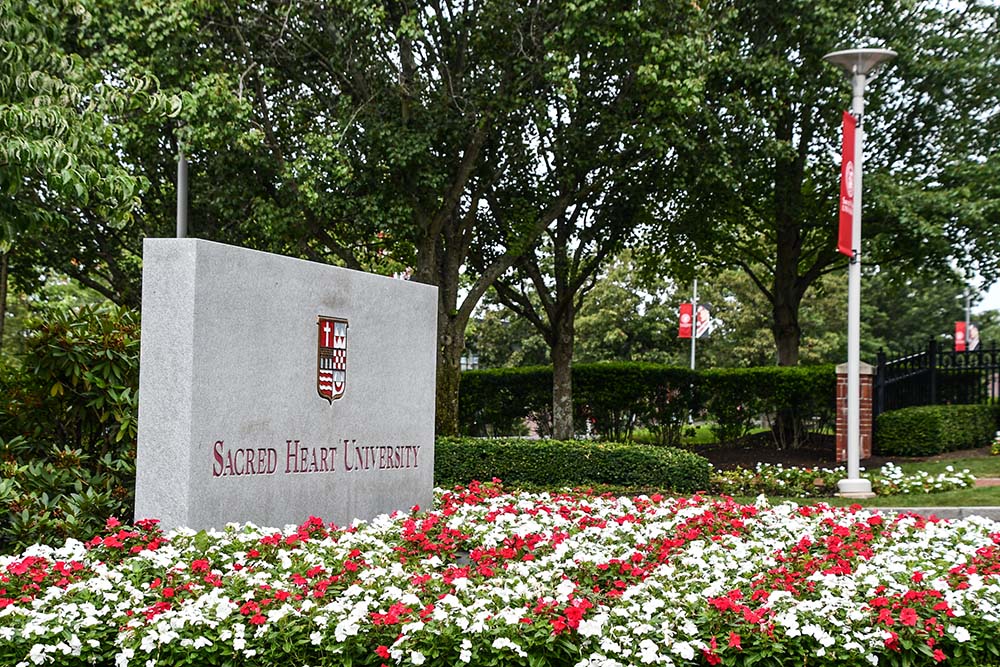
A new national survey by the Institute for Sustainability & Social Justice at Sacred Heart University in Fairfield, Conn., found that America's youth have high anxiety about climate change and little faith in the power of individual actions as solutions. (Dreamstime/Ritu Jethani)
America's youth have high anxiety about climate change and little faith in the power of individual actions as solutions.
A new national survey by Sacred Heart University revealed those views and found young people place the greatest responsibility on the government to address global warming, with one in three saying they will support candidates this November who share their views on climate, sustainability and social justice.
The digital survey, released Sept. 26 by the Institute for Sustainability & Social Justice at the Catholic university in Fairfield, Connecticut, polled 2,000 young people aged 15-29 between July 29 and Aug. 5.
More than half the youth respondents (55%) reported experiencing some level of "eco-anxiety," as a result of environmental crises like climate change, causing distress in their daily lives. That level of eco-anxiety was evident across all geographic regions.
Nearly three-fourths of young Americans say they're personally worried about climate change, including how it will harm them. High concerns were reported on how climate impacts will affect society (79%), their future quality of life (77%) and future generations (82%).
Kirk Bartholomew, development director for the Institute for Sustainability & Social Justice, attributed youth eco-anxiety in part to the clash between strong convictions on individual responsibility to do their part on climate change (77%) and little confidence those steps will actually make a difference — 57% said individual actions will have very limited or no effect in curbing rising temperatures.
"If you feel this really high level or high responsibility to take action, but you have a very poor opinion of the effect of your actions, that would seem to me to lead to kind of an internal conflict that could provoke anxiety," he told EarthBeat.
Advertisement
The survey was released as Hurricane Helene battered Southern states with torrential storms and flooding and following a summer that witnessed more dangerous heat waves and wildfires. In Phoenix, temperatures soared over 100 degrees Fahrenheit for 113 consecutive days.
Scientists have stated that climate change is amplifying these extreme weather events, as hotter temperatures prolong droughts, fuel conditions for wildfires, and heat oceans and air that then stoke stronger storms and flooding.
Other studies have found that climate impacts can affect mental health in a variety of ways, from feelings of isolation, depression and helplessness to higher rates of stress and self-harm.
In terms of responsibility to respond to climate change, majorities of those surveyed pointed to the federal government (57%) and state and local governments (56%). Fewer said educational institutions (33%) and religious organizations (18%).
With the November election weeks away, 82% of the 1,675 respondents age 18 and up reported they are registered to vote. Still, only half (56%) of young people in the survey indicated they were very likely to vote in the presidential election, though that percentage jumps to 85% when including those somewhat likely to vote.
On climate change, Vice President Kamala Harris and former President Donald Trump hold polar-opposite positions: Harris has pledged to continue implementing the Inflation Reduction Act's historic investments in clean energy and climate initiatives, while Trump has questioned climate change and sought $1 billion for his campaign from oil companies.
Conducted days after President Joe Biden ended his bid for a second term in the White House, the Sacred Heart survey found four-in-10 young people indicating increased support for Harris due to Biden's exit, compared to 24% for Trump. A quarter also said Biden ending his campaign had no change in their candidate support.
The Sacred Heart survey was conducted in partnership with GreatBlue Research and carried a margin of error of plus or minus 2.1 percentage points.
Building off-campus conversations, the Institute for Sustainability & Social Justice, which launched in January, wanted to learn more about how U.S. youth viewed the intersections of sustainability, social justice and climate change, and what role they envisioned higher education playing in each.
The survey found 48% of youth respondents saying colleges should provide education and awareness programs on climate change, as well as support research on sustainable technologies (45%), encourage community climate action (44%) and advocate and implement policies to address climate change (40%).
Interest was particularly high in colleges and universities teaching caring (77%) and mindfulness (78%) as important skills around sustainability and social justice.
Brooke Suter, a sustainability specialist who assisted with the survey, told EarthBeat it was encouraging that young people recognized these "inner capacity" skills as central to addressing environmental challenges facing the planet.
Such perspectives, she said, align with what Pope Francis has said is needed, including in his encyclical "Laudato Si', on Care for Our Common Home" — a document familiar to four-in-10 young people in the survey, a slight increase from the 33% of U.S. adults overall expressing awareness earlier this year.
Bartholomew said the survey's findings provide openings to Catholic institutions on ways to engage young people at the intersection of sustainability and social justice and help them alleviate anxiety and helplessness around climate change. For instance, he said, Catholic institutions can provide avenues for collective responses through programs like the Laudato Si' Action Platform, in which Sacred Heart is enrolled.
"This should point out to anyone who's leading a Catholic Church or any organization that's dealing with youth and young adults that they do care, that they care deeply, that they're worried and that they want to act," he said.







